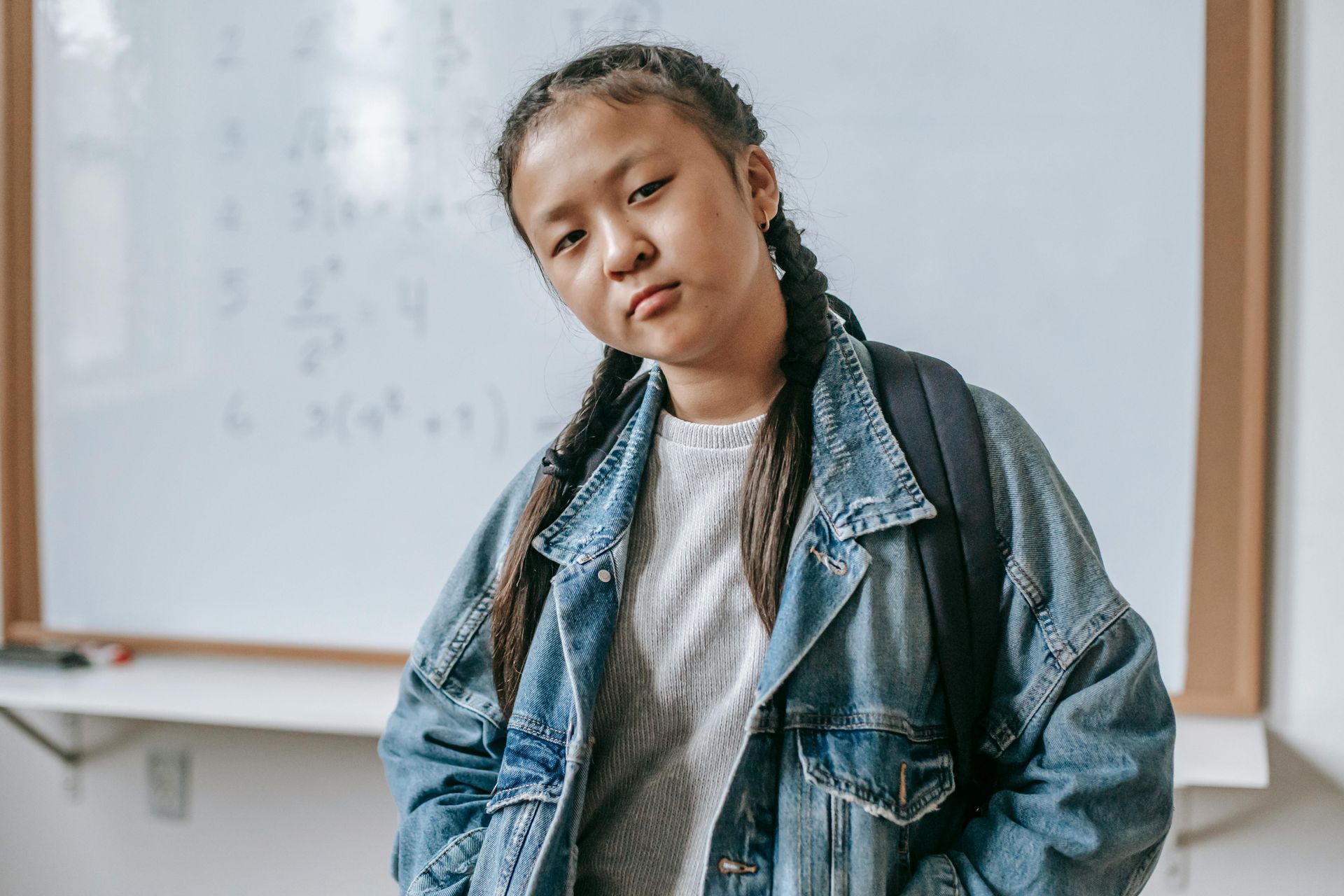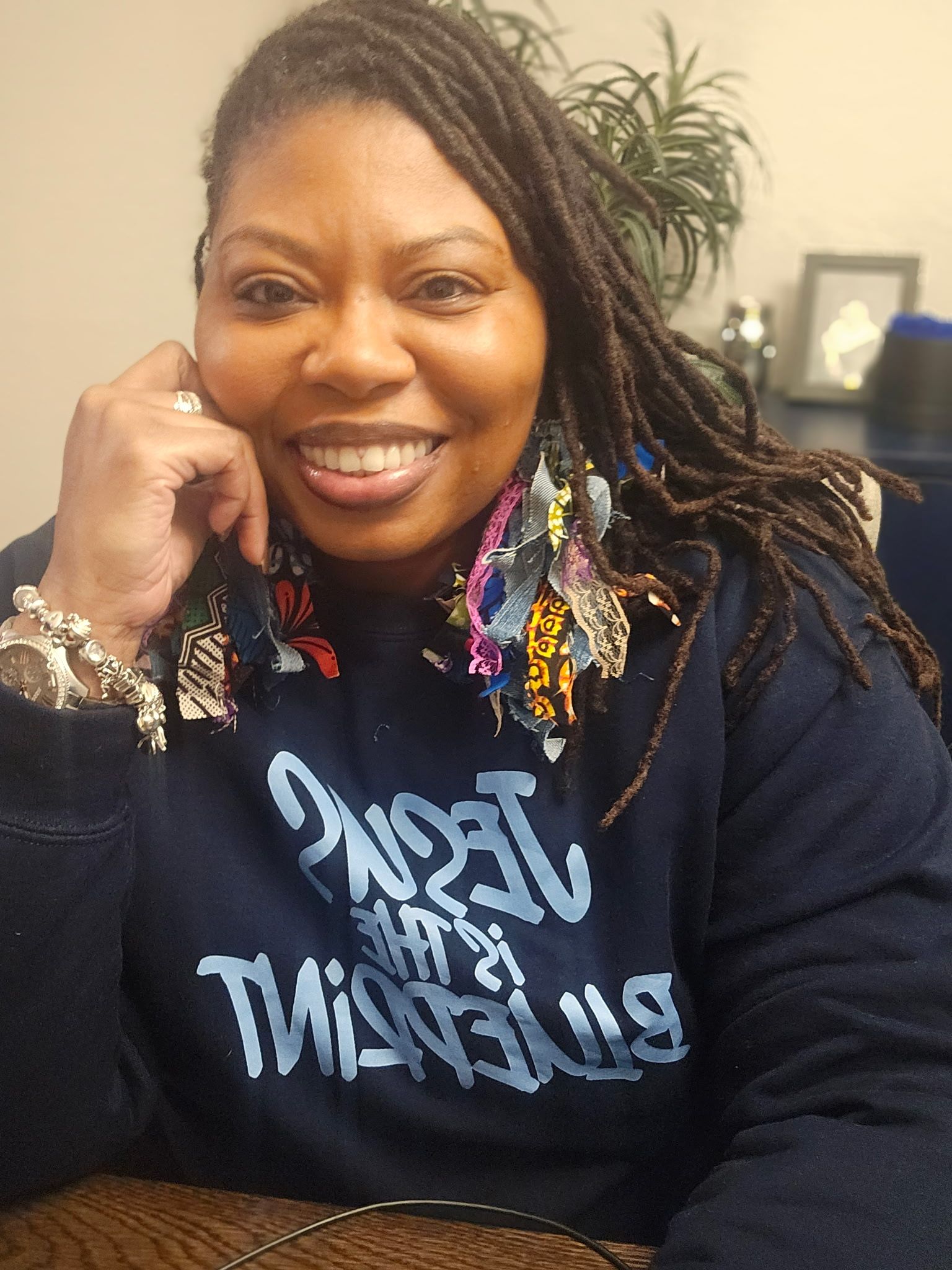Story of Hope: Ebony
November Advocate Impact Story
Advocate Natalie Mohler was assigned to Ebony in November of 2018 and stayed on as her advocate through October of 2020. Natalie was a constant throughout the many changes Ebony had in her life. Ebony came into the care of CPS when her father asked CPS for help dealing with Ebony’s erratic behaviors. It was discovered during this case that Ebony’s father contributed to many of Ebony’s unstable behaviors. The advocate maintained contact with all parties (father, caregivers/case managers) and reviewed documents throughout the CPS case. She coordinated with the parties on services and findings and exceeded the expectations of a CASA advocate throughout her case.
Natalie noted discrepancies in the CPS file and advocated for a review of the child’s paperwork to ensure proper placement. Some previous paperwork stated that Ebony was autistic, but this diagnosis had been ruled out by medical professionals in the past. This case review led to a closer and less restrictive placement. Natalie shined in the area of medical advocacy- she consistently communicated important information about medical follow-up appointments related to asthma and pre-existing conditions with the ad litem attorney for child, CPS and the father’s attorney. All of her findings were reported and considered during the court hearing. She made contact with former daycare teachers and maternal grandparents to gain a full picture of the family and life before CPS became involved with this family. Natalie demonstrated during a difficult case that she is very intuitive and handles conflict well. She remained professional even when things became tense. She experienced barriers and challenges but remained consistent in her goal; advocating for the best interest of the child.
During this case, Ebony was placed in eight placements and had five different caseworkers. Natalie was able to provide information to provide continuity for Ebony, despite all of the changes. Natalie was ESSENTIAL and a constant on this case that kept the caseworkers apprised of Ebony’s needs and the history of her case. She made recommendations that were helpful to the caseworkers and contributed to the successful outcome of this case. She testified about her firsthand knowledge of the case, based on her direct observations of Ebony and her father. Understandably, she developed a great bond with the Ebony and earned the respect of all parties. I am proud to say that Ebony now lives in her forever home and she has been adopted. She is thriving and her behaviors have stabilized now that she has normalcy, a consistent routine and permanency.
Courtney Turner, Advocate Supervisor

In December 2024, the Department requested TMC for a youth, Zoe, who was found to be homeless after both parents refused to accept parental responsibility. The mother had an extensive CPS history, and the alleged father had CPS history and a criminal history. While in care, life became challenging as Zoe made decisions that jeopardized placement; choosing to skip school, run away from placement, and get arrested for a misdemeanor charge. As a result of these behaviors, the Department placed Zoe in a facility out of state. In August 2025, Staff Advocate, Yvonne, accepted the Crossover Court Case involving Zoe. During the initial Zoom meeting between Yvonne and Zoe, the youth shared her love for sketching, singing, and making people smile. Zoe further shared her hopes and dreams with Yvonne; stating that if parental rights were terminated, she hopes to be adopted by a loving family and wants to pursue her dream of having a career in law enforcement. Recently, Yvonne had the opportunity to visit Zoe at her out-of-state placement, where their conversations were not limited by time on a video call. When Yvonne met Zoe in person, she shared that she couldn’t sleep the morning of Yvonne’s arrival because she feared that Yvonne would be another adult who did not show up for her. Yvonne was able to lay that worry to rest by simply keeping her word, a small act that means the world to the children CASA serves. During the visit, Zoe shared that she wanted to make her CASA proud by improving her school grades, staying out of trouble with peers at placement, and staying busy with extracurricular activities. Yvonne was happy to hear Zoe share her aspirations and encouraged Zoe to continue on this positive path. The conversations about Zoe’s day-to-day happenings in life led her to share the more traumatic events with Yvonne. Yvonne listened and provided a space for Zoe to share what she was comfortable with. Yvonne encouraged Zoe to continue processing her trauma and grief with her therapist and find peace, past the pain of being estranged from her family and individuals whom she trusted. Despite the setbacks Zoe has endured in efforts to restore family connections, Yvonne continues to show up and support Zoe in self-advocating for her educational and placement needs as she approaches adulthood. Zoe’s educational goal is to attend her senior prom and walk across the stage at a public high school to receive her diploma. Most importantly, Zoe hopes to be placed in a Texas foster home where she will be protected, loved, and trusted. Regardless of where life and the case takes Zoe, Yvonne will be there at every turn.








